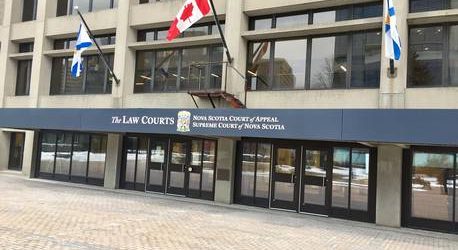A Halifax lawyer says a class action against a medical cannabis producer will still go ahead despite a Nova Scotia Court of Appeal ruling that reduces the scope of the lawsuit.
The class action against Organigram Inc. of Moncton, N.B., was filed in March 2017 after some of its cannabis was recalled because it contained trace amounts of unauthorized pesticides.
The lead plaintiff is Dawn Rae Downton, a medical cannabis user who claims she experienced nausea and vomiting from consuming the pot that was later recalled by Organigram.
A Nova Scotia Supreme Court judge certified the class action in January 2019, clearing the way for it to proceed to a common issues trial.
But Organigram appealed, saying parts of the certification order should be quashed.
The company did not challenge the decision to allow consumer claims to be assessed as common issues but appealed portions of the certification order involving personal injury claims of adverse health consequences.
The company argued on appeal that there is no evidence that its cannabis caused any adverse health effects, nor a “workable methodology” for establishing any causal connection between its cannabis and the symptoms complained of in this case.
Organigram also said the judge erred in certifying claims of unjust enrichment.
In a decision released Thursday, the Appeal Court allowed the company’s appeal in part.
“There is no evidence that there is a workable methodology to determine that the proposed adverse health effects claims have a common cause,” Justice Peter Bryson wrote for the appellate panel.
“Proposed common issues for those claims should not be certified. The claim for unjust enrichment is improperly pleaded and should be struck.”
Lawyer Ray Wagner, who represents the plaintiff in the class action, said they are disappointed with the decision but respect the court’s view on the personal injury claims.
“The problem arose in addressing short-term harm,” Wagner told The Chronicle Herald on Friday. “We alleged various ailments were caused by the unlawful use of myclobutanil and bifenazate.
“Unfortunately, there are no studies to relate the type of biological impacts (that) result from the combustion of these products because it would be unethical to use, by combustion, pesticides and herbicides on humans in comparison to a control group. Fortunately, the frequent ill effects of consuming the product appear short-term.”
Wagner said his legal team will pursue the consumer protection aspect of the class action through to trial.
“We hope to get to the bottom of what happened, by whose direction and with whose knowledge,” he said.
“Important public policy concerns arise when producers are using pest control products unlawfully on combustible products that are also promoted as organic.”
He said he will seek instructions from his client on whether an appeal to the Supreme Court of Canada is warranted.
A news release from Organigram said it will continue to defend what remains of the class action.
The company said it has already voluntarily reimbursed many of its customers for the recalled product.
“Organigram previously reported the class action to its insurance provider, which appointed counsel to defend the class action,” the release said. “Insurance may be available to cover all or a portion of the fees or damages which may be associated with the class action, although the company’s coverage may be subject to varying limits or exclusions.
“While the ultimate outcome of any court process is difficult to ascertain, Organigram management does not anticipate that what remains of the class action (including the resolution thereof) will affect its business or operations in any material way.”


